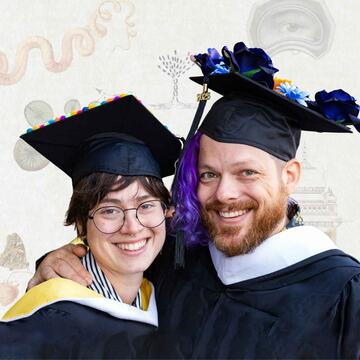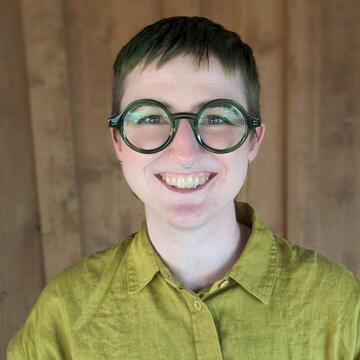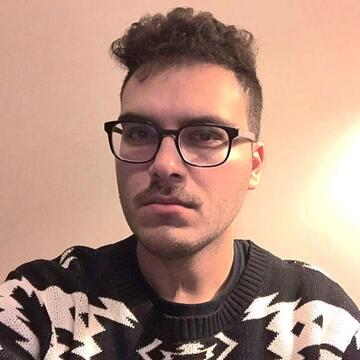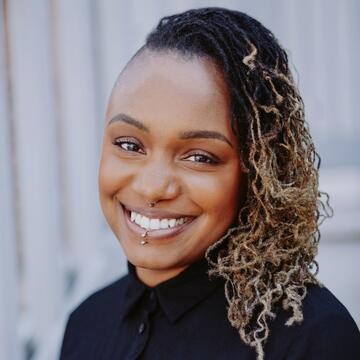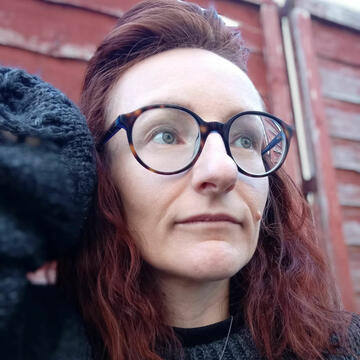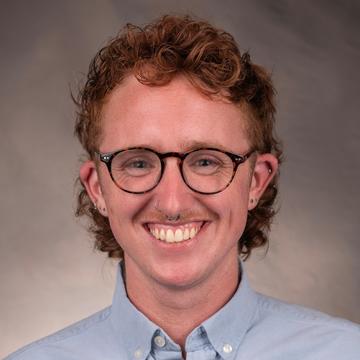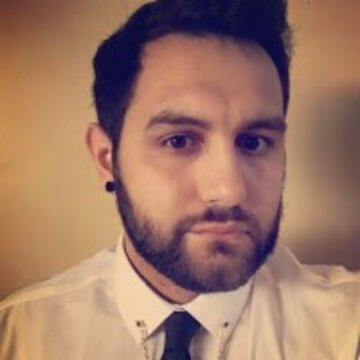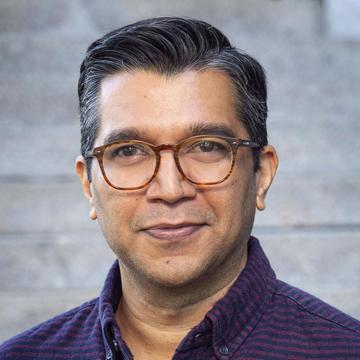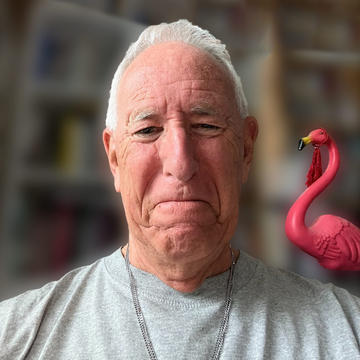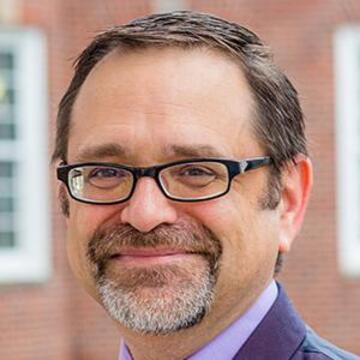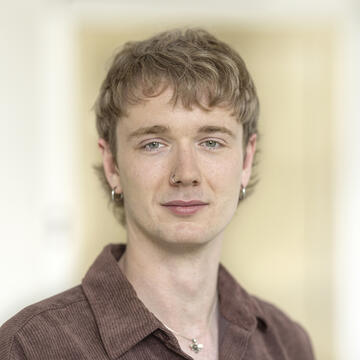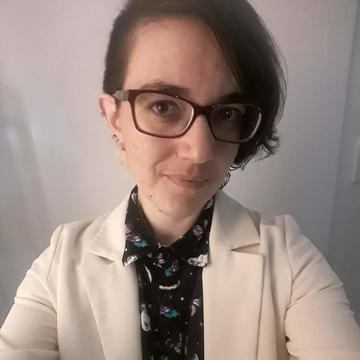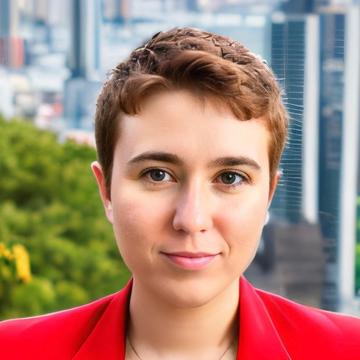
Lavender Languages Institute
Now Accepting Summer 2026 Cohort Applications
The annual Lavender Languages Institute at the Human Sexuality Department runs online from June 8-17, offering 10 days of online class discussion, research opportunities, and informal conversations exploring topics of current interest in language and sexuality studies, queer linguistics, and various lavender language themes.
Who Should Attend?
- Those just beginning language and sexuality studies
- Those preparing undergraduate or graduate research topics (including thesis or dissertation proposals)
- Those seeking a safe space to examine language/sexuality topics in depth
2026 Course Offerings
-
Dr. Crowley
What do you need to know about language and linguistics to study gender and sexuality? This one-day workshop will provide an introduction to linguistics and language studies to prepare students to engage with research within Queer and Trans Linguistics and Lavender Language frameworks. We will address key concepts in phonetics, morphology and syntax, discourse analysis, and semiotics to prepare you for research on language, gender, and sexuality.
-
Dr. Crowley
Research on language attitudes and ideologies has explored how people’s beliefs about languages and linguistic practices impact how they navigate their language use and how they evaluate others’ language use. This class will consider how language ideologies circulate within and about queer and trans communities and language(s). We will look at how language ideologies emerge within particular social, economic, political, historical, and cultural contexts which, in turn, are reflected in and productive of hierarchies, erasures, and privileges. Students will be encouraged to draw on this analytical framework to study a language phenomenon of their interest.
-
Dr. Kini
This course will engage convergences in queer studies, lavender languages and ethnic studies. Drawing on both foundational and recent feminist and queer scholarship in Black studies, Native and Indigenous studies, Latinx studies and Asian American studies, we will take an intersectional and relational approach to the study of race as a mode of difference and power. To this end, we will consider how scholars, artists and activists have conceptualized the intersections of multiple systems of domination, as well as imagined and forged new forms of political identity, community, language and culture in their struggles for more just futures.
-
Dr. Chojnicka
This course delves into the complex relationship between language, queerness, and globalization. It explores how the global spread of English intersects with the commodification of queerness, whereby a sanitized, marketable – and, notably, “Western” – model of queerness passes as universal, and alternative local ways of being queer are overlooked, silenced, suppressed. Combining queer studies with postcolonial/decolonial linguistics and critical approaches to Global English research, it challenges the idea of English as the "queer lingua franca", the only language of queer liberation and global queer culture. Through engaging with multilingual and localized queer narratives, the course suggests a critical reading of global queer history and promotes the recognition of diverse queer experiences.
-
Dr. Daniel Edmondson
Two major shifts in language, gender and sexuality research include the advent of queer theory, and the move to qualitative, discourse-analytical approaches which followed it. Subsequently, more quantitative and experimental approaches in the field can often be treated with some caution. Chief among concerns is a perceived over-reliance on rigid categorisation, as well as a presumed insensitivity to individual and contextual variation. Drawing on both theoretical discussions and practical approaches attested in the literature, this course will suggest a variety of steps researchers can take, in order to still benefit from quantitative methods without compromising our queer perspective.
-
Dr. Vriesendorp
Non-binary language innovation in English has primarily focused on innovation in new (uses of) personal pronouns. Other languages, however, may much more elaborate or entirely different systems of gender marking. In this course we dive into recent scientific research into non-binary language innovations in other languages, including German, French, Spanish, and Arabic, focusing on data which reports on the language practices of speakers of minority genders themselves. These data show a much more expansive range of language practices and innovations, as well as ways to think about what it means to exist partly or fully outside of traditional gender binaries.
-
Dr. Leap
Recommended prerequisite: An introduction to queer/trans linguistics and an introduction to queer/trans theory. A sincere commitment to course interests will probably offset the prerequisite.
This one-day seminar explores what queer and trans linguistic history(s) might contain if historical studies were not organized in terms of chronologies, trajectories, linear sequences, or movement toward some triumphant goal. This course orients around the method(s)-and-theory(s) of queer and trans linguistics. Course discussions assume that the goal of queer and trans historical inquiry is to build descriptions of language, gender and sexuality in history that will displace the authority of gender/sexual normative regimes. We will talk about locating effective data sources, building effective data sets and archives, locating evidence for gender and sexuality within the language of historical texts, techniques for comparisons of evidence across texts, and the usefulness of theory “in the present” for interpreting conditions in “the past.”
*with apologies to Cindy Patton
-
Dr. Peterson
This seminar allows you to explore the queer potentials of grammar, taking a primarily systemic-functional perspective on how linguistic resources enable (or frustrate) possibilities for queer activism (including self and community advocacy, and the broader advocacy for belonging). The seminar will also provide tools for understanding and critiquing nationalist, heteronormative, cisgendered (and other) ideological formations that seek to curtail our belonging. While instructional examples will largely be drawn from Anglophonic countries, participants are strongly invited to draw on other linguistic communities to co-construct our understandings of the linguistic possibilities for positive change.
-
Dr. Carney
In this class, we will approach critical questions regarding black sexual agency, pleasure and intimacy while also being attuned to histories that also position black people in relation to white violation, dehumanization and the larger project of positioning black folks as subhuman. We will approach this dialectical relationship by positioning the politics of representation and respectability within the realm of popular culture and language, such as pornography studies, and other highly consumed forms of media. Furthermore, we will discuss themes of intramural policing, and other forms of oppression performed within (and outside) Black communities using Black Feminist Theory as ways to understand how respectability politics are martialed in the current public sphere.
-
Dr. Bingham Brunner
This workshop provides an introduction to Crip linguistics, which is a new field of study combining linguistics with Crip theory, a field of Disability Studies that combines Queer theory and disability to break apart and reject the idea of “normal” in (dis)ability. Crip Linguistics brings disability and neurodivergence into the study of language variation, as well as bringing disability and accessibility concerns into how we study language itself. In this talk we will examine compulsory abledness and compulsory neurotypicality in linguistics, as well as considering how we can become anti-ableist linguists in our own contexts.
-
Dr. Calder
Semiotics is the study of signs, how they are used, and how they are interpreted. This course builds on the discussions of Queer and Trans Semiotics from the introductory course offered in previous summer institutes. The course will examine in closer detail how key topics and concepts in the study of semiotic theory (e.g., indexicality, iconicity, embodiment, agency) tie into the articulation of gender identity, especially for queer and trans subjects -- despite cisnormative discourses that threaten to position them as illegible?
-
Dr. Heritage
In this course, you will learn how to analyse large collections of machine-readable texts. You will engage with freely accessible software to investigate discourses of gender and sexuality. You will learn the basic concepts associated with corpus linguistics and how these can be combined with more qualitative interpretations of data. This course will provide corpora that you might want to explore the representation of different gender and sexual identity within, but participants are also welcome to bring their own corpora to investigate. By the end of this course, you should feel more comfortable in using corpus software to investigate large, representative samples of naturally occurring data.
Class Schedule
(All times in Pacific Daylight Time)
Week 1
| Saturday, June 6, 2026 | |
|---|---|
| Time | Class |
| 7:00 AM - 1:00 PM | Introduction to Linguistics for Lavender Language Study (Foundational) |
| Monday, June 8 - Friday, June 13, 2026 | |||
|---|---|---|---|
| Time | Group A | Group B | Group C |
| 5:30 AM - 6:45 AM | Non-Binary Language Innovation Across Languages (Topics) | Queer Grammar, Queer Rhetoric: Linguistic Approaches to Advocacy, Activism and Critique (Methods) | Queer of Color Critique (Topics) |
| 7:00 AM - 8:15 AM | Queering Global English (Topics) | Queer and Trans Semiotics I (Foundational Methods) | Analyzing Gender, Sexuality, and Queer Identity with Corpus Linguistic Methods: Big Data Meets Close Qualitative Reading (Methods) |
| 8:30 AM - 9:30 AM | Hour free for lunch and LLI social activities | ||
| 9:45 AM - 11:00 AM | Queering Quants, Resisting Reduction (Methods) | Language, Attitudes and Ideologies (Topics) | Language and Black Sexual Politics (Topics) |
| Saturday, June 13, 2026 | |
|---|---|
| Time | Class |
| 7:00 AM - 1:00 PM | Language, Gender/Sexuality, History: “Tremble, heteronormative linguistic swine”* (Methods) *Apologies to Cindy Patton |
| Sunday, June 14, 2026 | |
|---|---|
| Time | Class |
| 9:00 AM - 12:00 PM | Crip Linguistics (Topics) |
Week 2
| Monday, June 15 - Friday, June 16, 2026 | |||
|---|---|---|---|
| Time | Group A | Group B | Group C |
| 5:30 AM - 6:45 AM | Non-Binary Language Innovation Across Languages (Topics) | Queer Grammar, Queer Rhetoric: Linguistic Approaches to Advocacy, Activism and Critique (Methods) | Queer of Color Critique (Topics) |
| 7:00 AM - 8:15 AM | Queering Global English (Topics) | Queer and Trans Semiotics I (Foundational Methods) | Analyzing Gender, Sexuality, and Queer Identity with Corpus Linguistic Methods: Big Data Meets Close Qualitative Reading (Methods) |
| 8:30 AM - 9:30 AM | Hour free for lunch and LLI social activities | ||
| 9:45 AM - 11:00 AM | Queering Quants, Resisting Reduction (Methods) | Language, Attitudes and Ideologies (Topics) | Language and Black Sexual Politics (Topics) |
| Wednesday, June 17, 2026 | |
|---|---|
| Time | Event |
| 7:00 AM - 9:30 AM | Final Closing Session: everyone meets for closing session |
Where Do I Apply?
Prospective participants should fill out and submit the Summer 2026 Application Form.
For more information, email lavlanginstitute@ciis.edu.
What Are the Fees?
The total cost to participate is $350.
Program Alumni and Cohort Photos
-
Adrian Ray Avalani - The University of Chicago (2021)
Adrienne Percival - Compass Community Center (2021)
Aiden Loughlin - University of Victoria (2019)
Aine McAlinden - Georgetown University (2021)
Aisha Ramazanova - Higher School of Economics (2022)
Alex Bandong - Appalachian State University (2021)
Allen Michaela - University of St. Thomas (2021)
Andrea Bryant - Reed College (2021)
André Bernard - Hong Kong Baptist University (2022)
Archie Crowley - University of South Carolina (2018, 2019, 2021, 2022)
Artemis López Fuentes - Universidade de Vigo (2021)
Ashley Thornton - University of Brighton (2021)
Ayden Loughlin - University of Victoria (2021)
Brandon William Epstein - Bar-Ilan University (2022)
Brooke English - Rice University (2018)
Carlos Vazquez - State University of New York, Stony Brook (2019)
Chen Li-Chi - Faculty of Linguistics, Casimir the Great University (2021)
Claudia Holguin Mendoza (2021)
Corey Tatz - Memorial University of Newfoundland (2021)
Corey Thorne - Memorial University of Newfoundland (2018)
Damara Martin - Florida Atlantic University (2019)
Darren Brockes - The University of Chicago (2021)
Darrin Miller - University of North Texas (2018)
Derek Vaughn - Florida Atlantic University (2018)
Diana Davidson - University of Washington (2022)
Elizabeth Johnstone - New York University (2021)
Emerson Barrett - Oregon State University (2022)
Ernesto Cuba - City University of New York, The Graduate Center (2018)
Farieda Ilhami Zulaikha - Universitas Perjuangan Tasikmalaya (2021)
Guadalupe Ortega - Dartmouth College (2022)
Hanna Bruns - University of Bonn (2021)
Hannah Bingham Brunner - Oklahoma State University (2021, 2022)
Hannah Sawall - University of Duisburg-Essen (2022)
Hazel Marshall - Ucniveristy of California, Santa Barbara (2018)
Ian Funk - The George Washington University (2021)
J. Inscoe - University of Maryland Baltimore County (2021)
Jade Levandofsky - American University (2018)
Jamison Wezelis - SUNY, University at Buffalo (2021)
Jason D'Angelo - Georgetown University (2018, 2019)
Jennifer Bosco - University of San Fransisco (2022)
Jhonatan Henao-Muñoz - University of Arizona (2021)
Jimmy Lizama - Researcher at Rising Graduate Student (2021)
Joey Andrew Lucido Santos - Chulalongkorn University (2021)
Jordan Tudisco - University of California, Santa Barbara (2018, 2021)
Joseph Radice - University of Florida (2019)
Julissa Mansilla Bjalme - Florida Atlantic University (2019, 2021)
Kate Pashby - Independent (2021)
Kevin Rivera-Morales - University of Victoria (2019)
Lara Boyero Agudo - University of Oregon (2021)
Laura Horst - California Polytechnic State University - San Luis Obispo (2018, 2019)
Lex Konnelly - University of Toronto (2018, 2019, 2021, 2022)
Leyla Savloff - University of Washington, Seattle (2018)
Makayla Qionn - University of St. Thomas (2022)
Matias Sanhueza - University of Chile (2021)
Maximilliano Campana - independent scholar (2019)
Max Reuvers - University of Groningen (2022)
Melissa Curry - Rhode Island College (2018)
Michael Barnes - University of Birmingham (2021)
Michelle Marzullo - California Institute of Integral Studies (2018)
Mie Hiramoto - National University of Singapore (2019)
Mira Cantrick - California Institute of Integral Studies (2021)
Montreal Benesch - Reed College (2021, 2022)
Natascha Rohde - Aston University Birmingham, U.K. (2021)
Orion Wesson - University of Oregon (2021)
Patrick Sonnenberg - University of Tennessee, Knoxville (2018)
Peter D'Ettore - Broward College (2021)
Peyton Sibert - Florida Atlantic University (2022)
Ray Johns (2022)
Rebecca Andre - Palm Beach County Now (2021)
Remington LeBeau (2022)
Robin Hershkowitz - Bowling Green State University (2021)
Robin Turner - University of Illinois (2021)
Sahin Acikgoz - University of Michigan, Ann Arbor (2018)
Simon Charles Thériault - University of Montreal (2019)
Sydney Jameson-Blowers - University of Buffalo (2021)
Tahtzee Nico - University of Washington (2021)
Vagrant Gautam - Saarland University (2022)
Victoria Portela-Rosado - University of Victoria (2019)
Will Alvarez Navarrete - University of British Columbia (2021)
-
Image
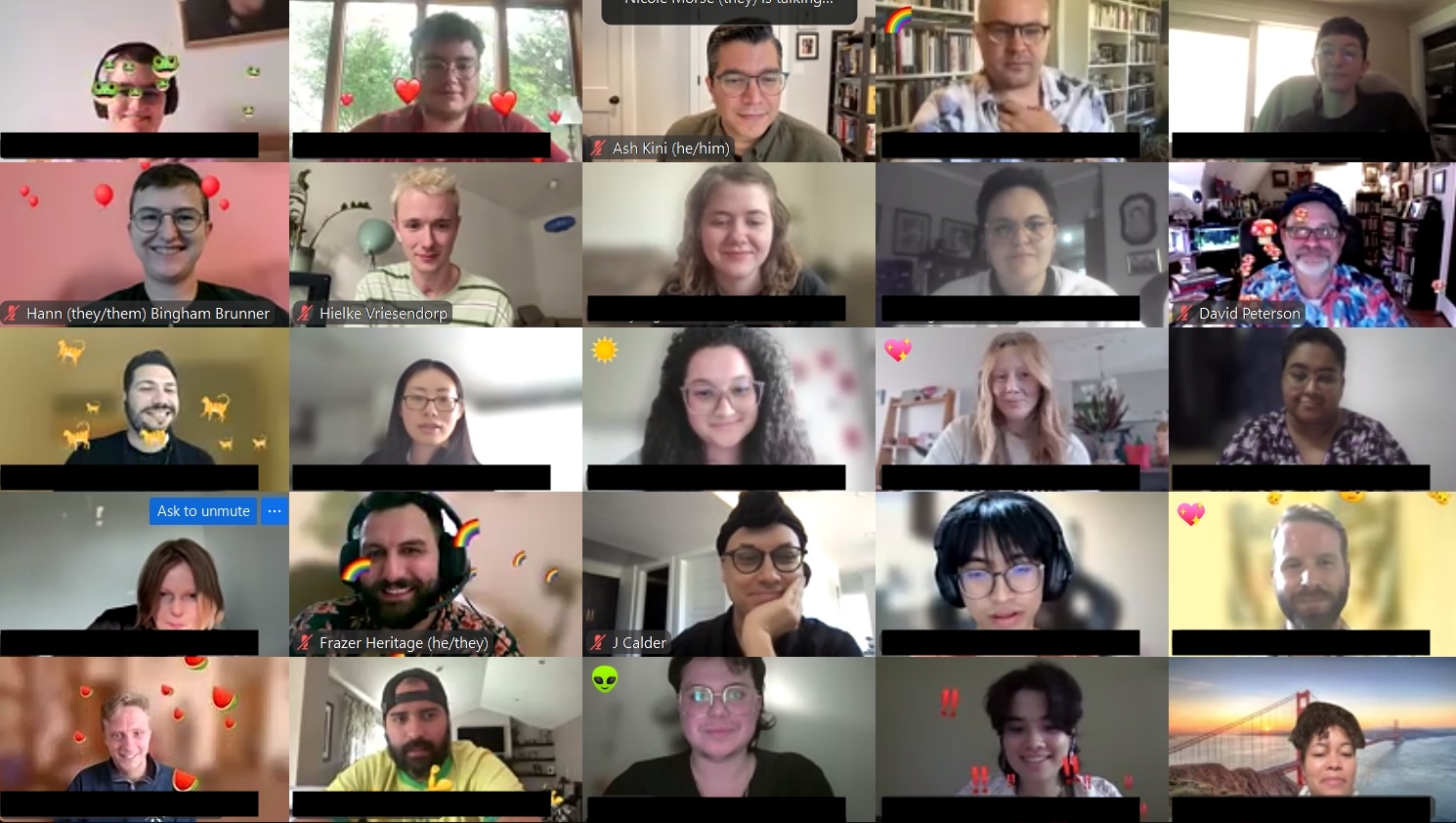
2025 Lavender Language Cohort -
Image
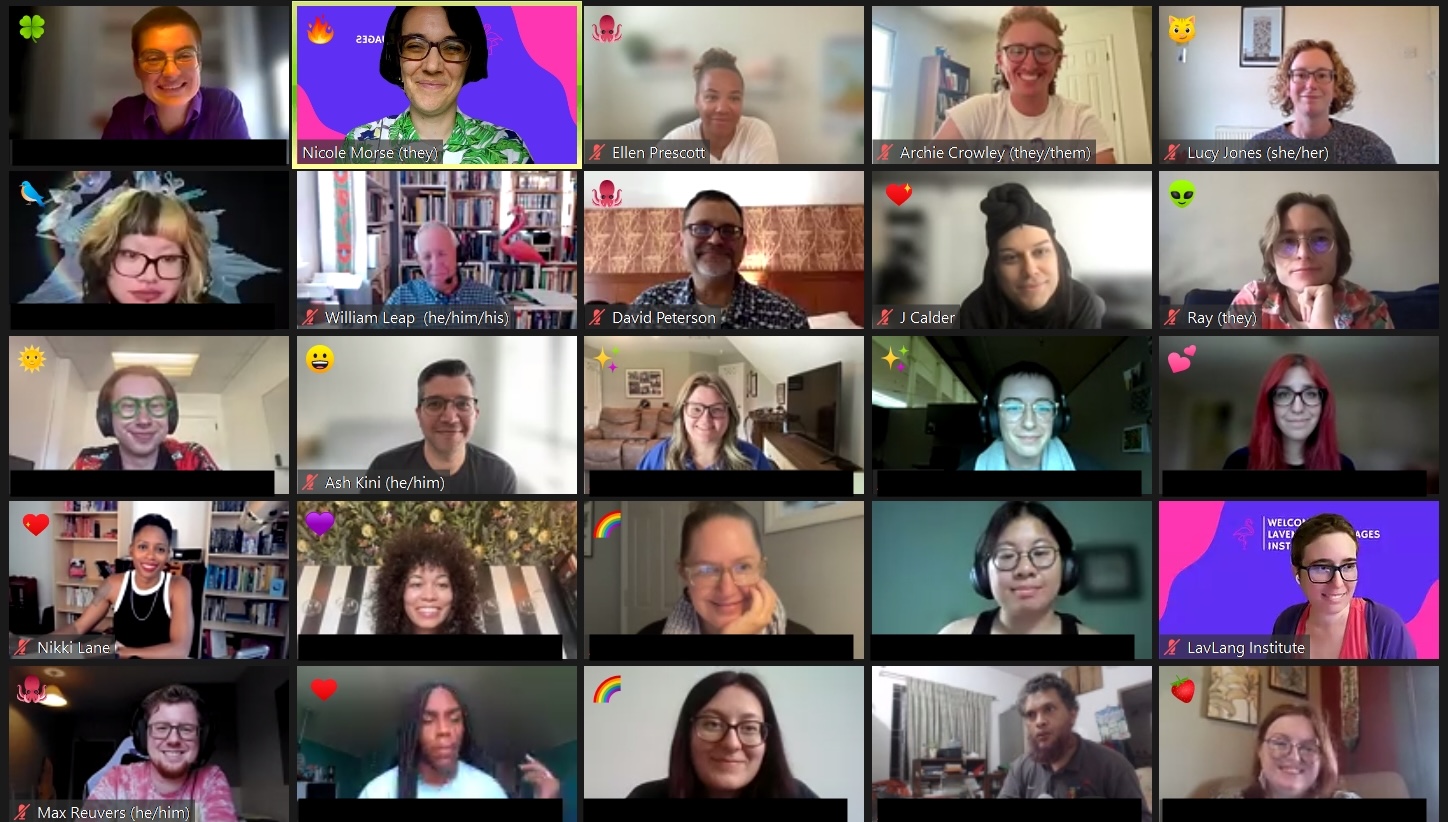
2024 Lavender Language Cohort -
Image
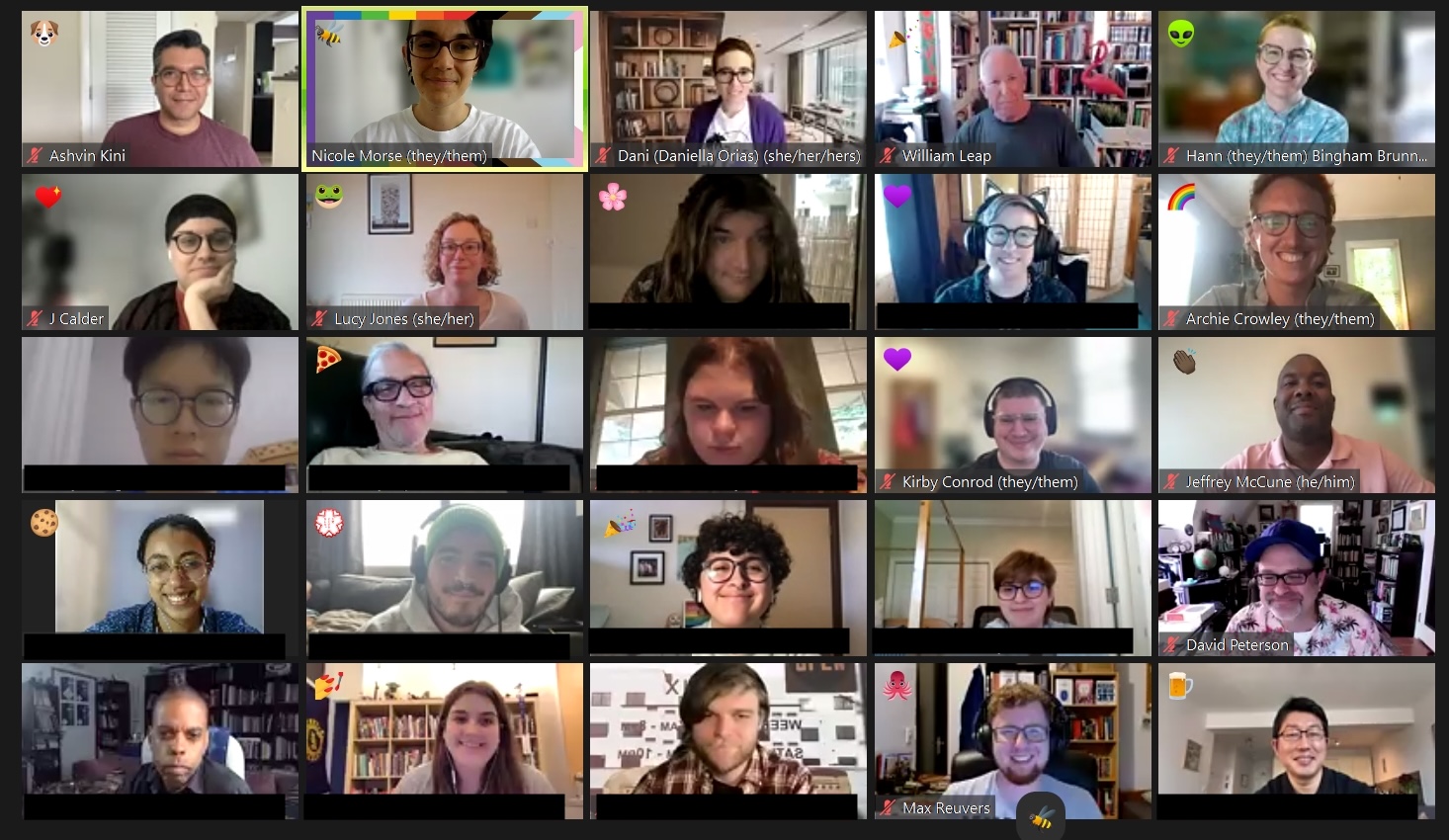
2023 Lavender Language Cohort -
Image
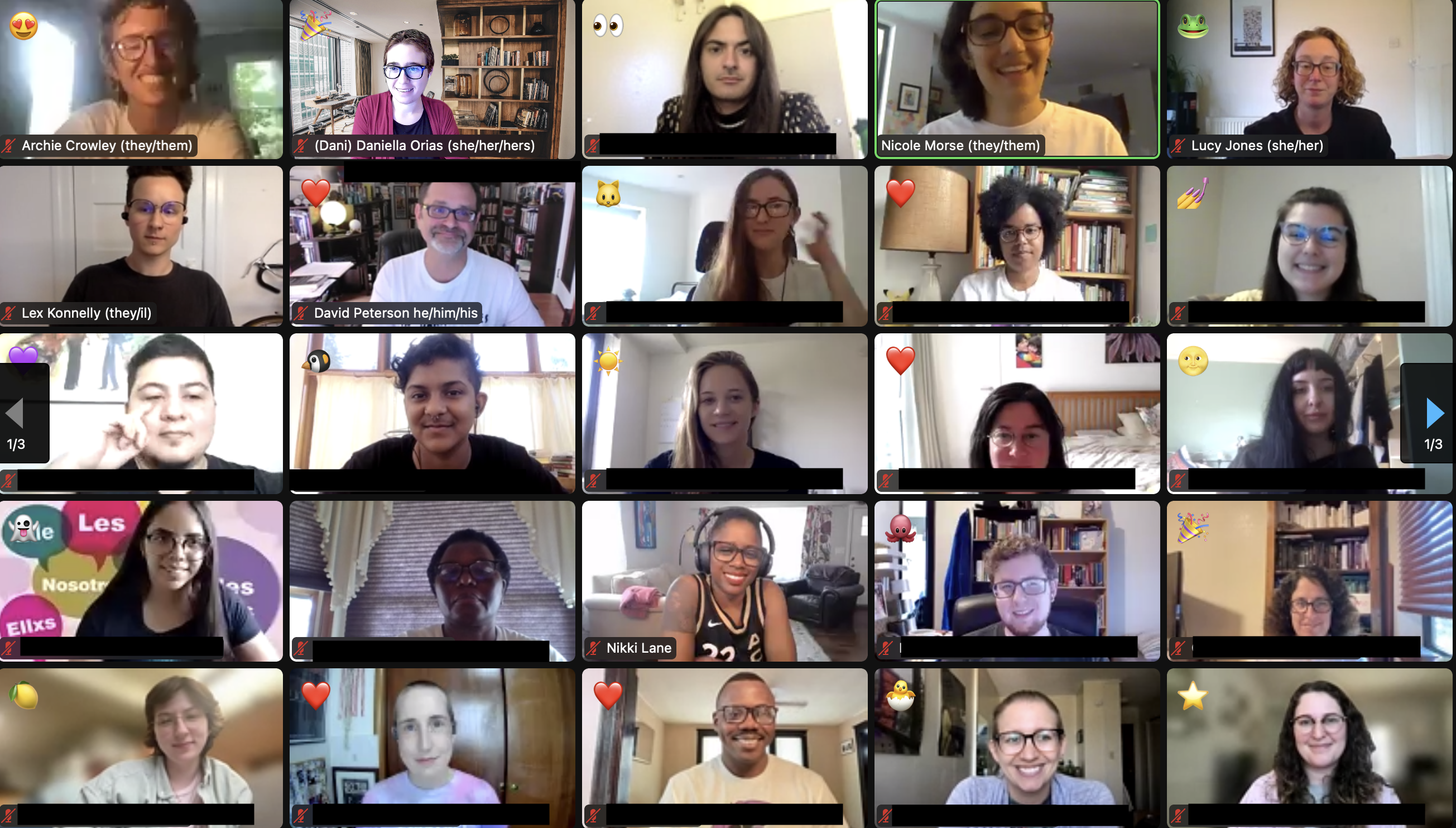
2022 Lavender Language Cohort (not entire LLI group in picture) -
Image
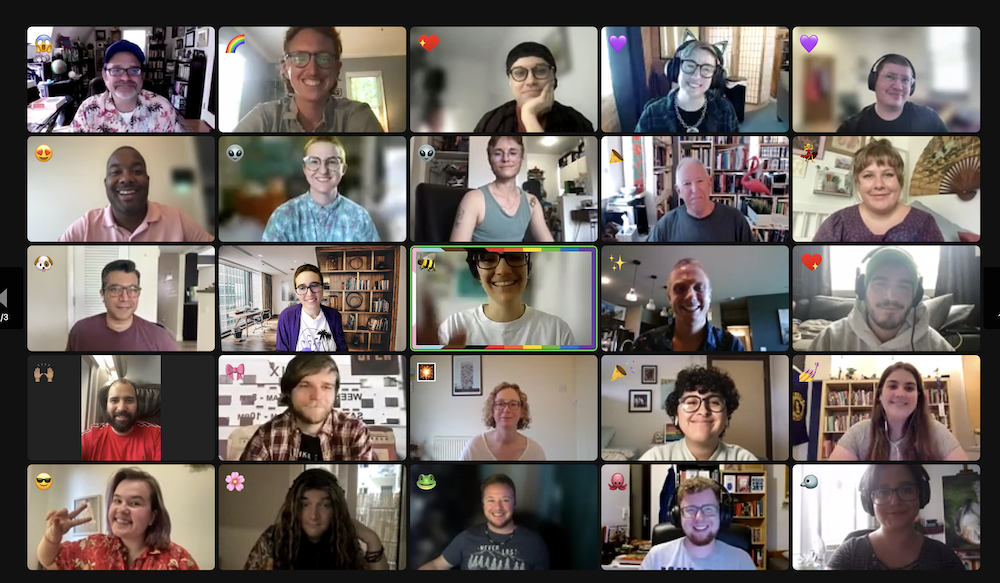
2021 Lavender Language Cohort (not entire LLI group in picture) -
Image
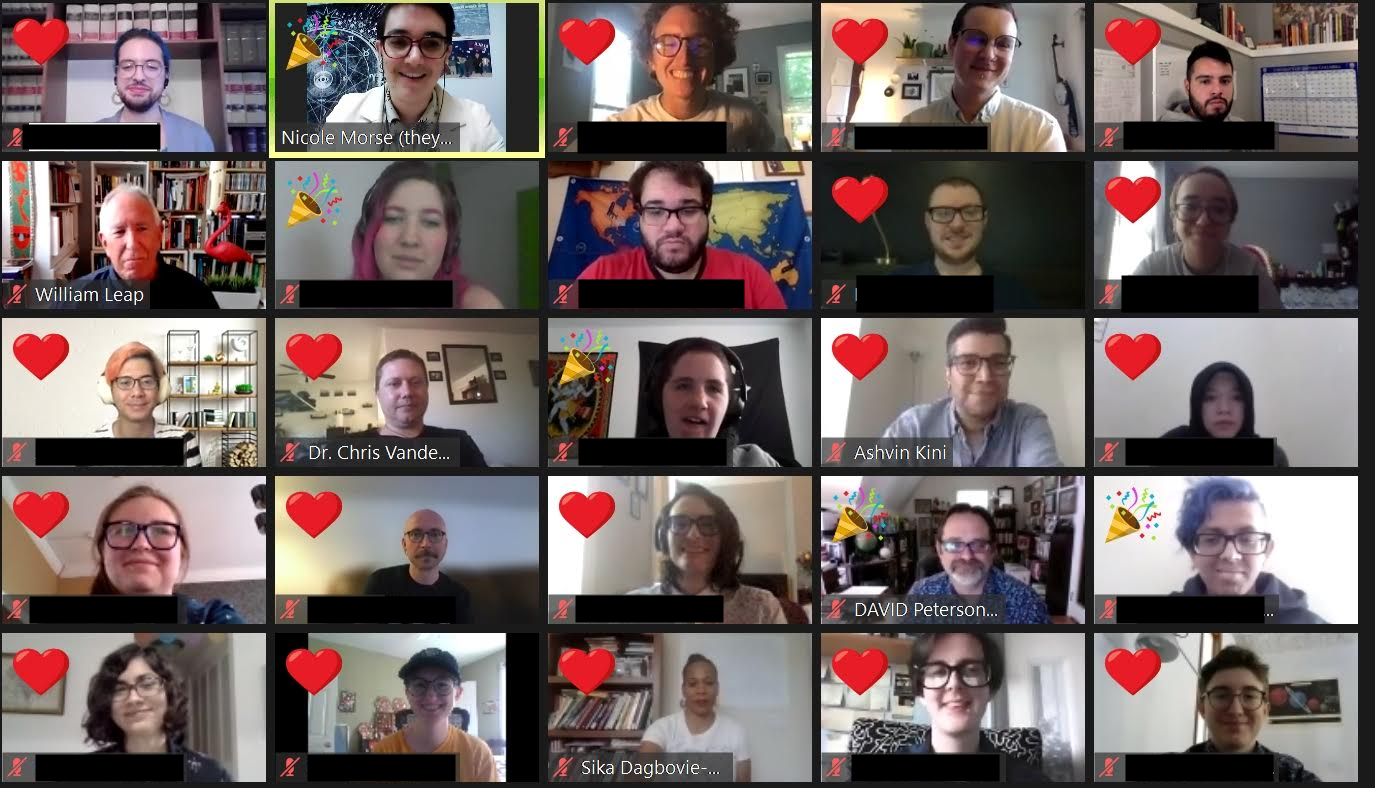
2019 Lavender Language Cohort -
Image
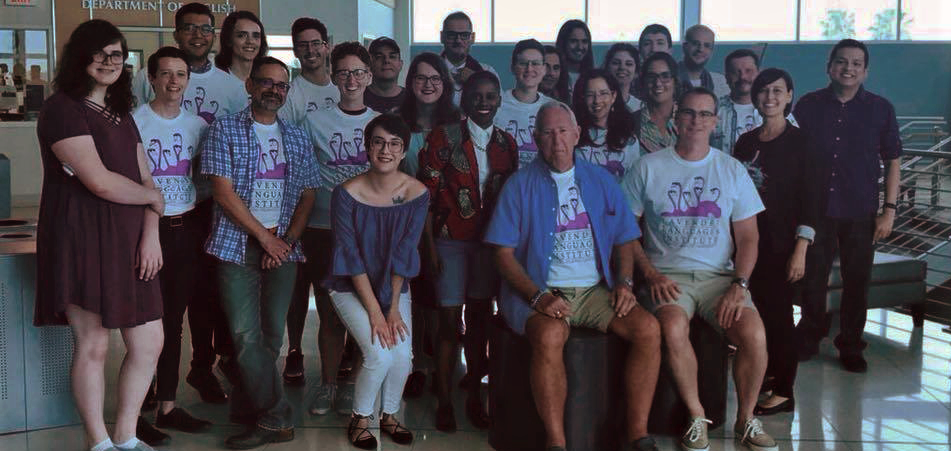
2018 Lavender Language Cohort
Meet the Faculty
Lavender Languages Institute Instructor
